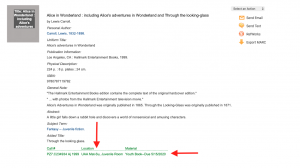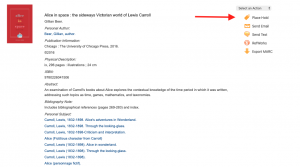From time to time, the Statewide Library Electronic Doorway (SLED) does trials of new databases, giving you access to fantastic resources and information. Some of these trials are expiring on June 30th – be sure to check them out before they’re gone!
Access all databases through the SLED website, here: https://lam.alaska.gov/databases/a_z
Here’s a list of the trials expiring at the end of June:
- Access Video on Demand
- African-American History
- American History
- American Indian History
- Ancient & Medieval History
- Bloom’s Literature
- Issues & Controversies
- Mailbox School & District Edition
- Mid/High School eBook Subscription Collection
- Modern World History
- Polling the Nations
- Science Online
- Source Reference
- Today’s Science
- World Almanac
- World Almanac for Kids
- World Almanac for Kids Elementary
- World News Digest
- Writer’s Reference Center
These trials will expire at the end of August:
- Audio Book Cloud
- Romance Book Cloud
- Teen Book Cloud
- Tumble Math


